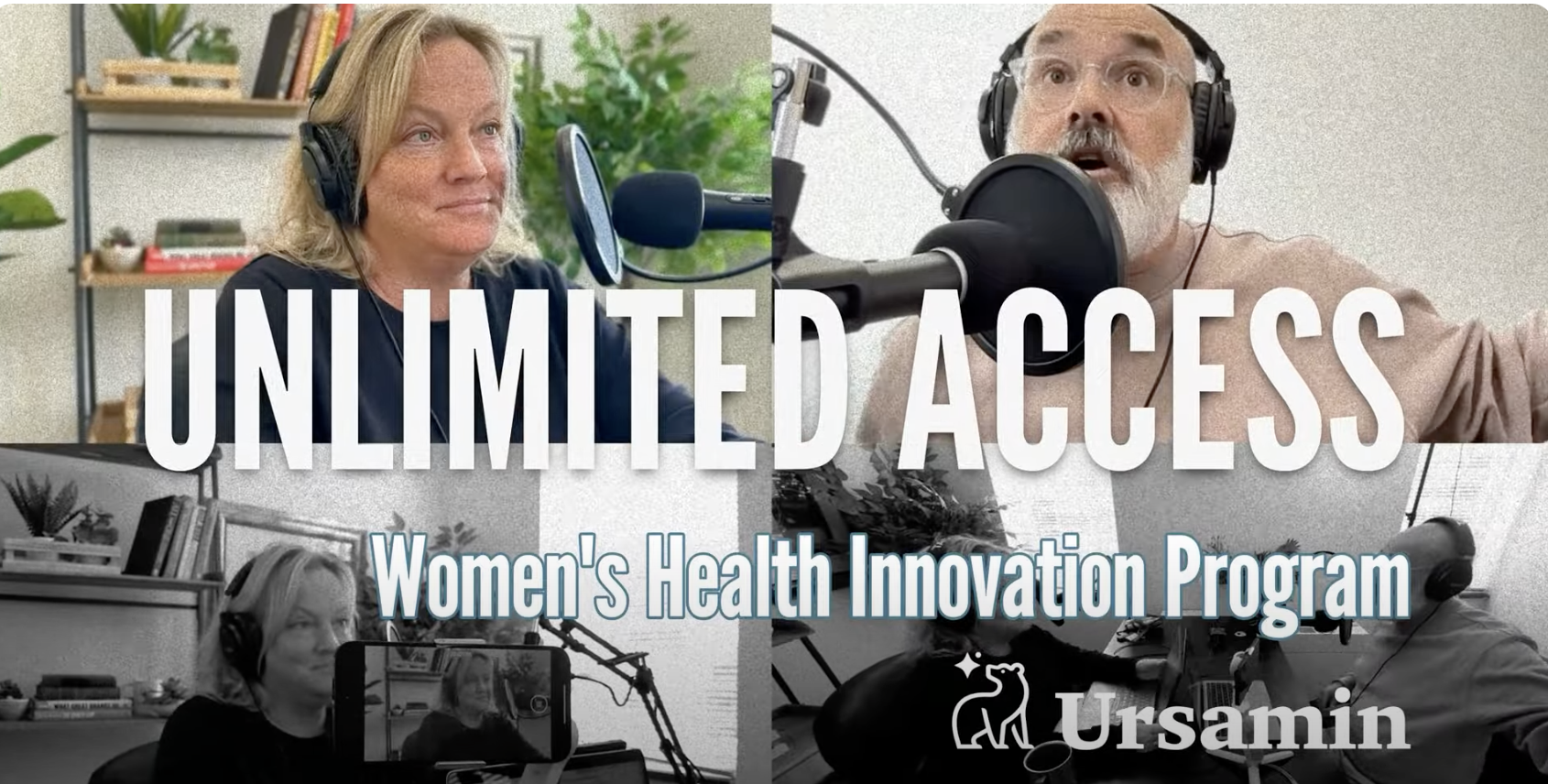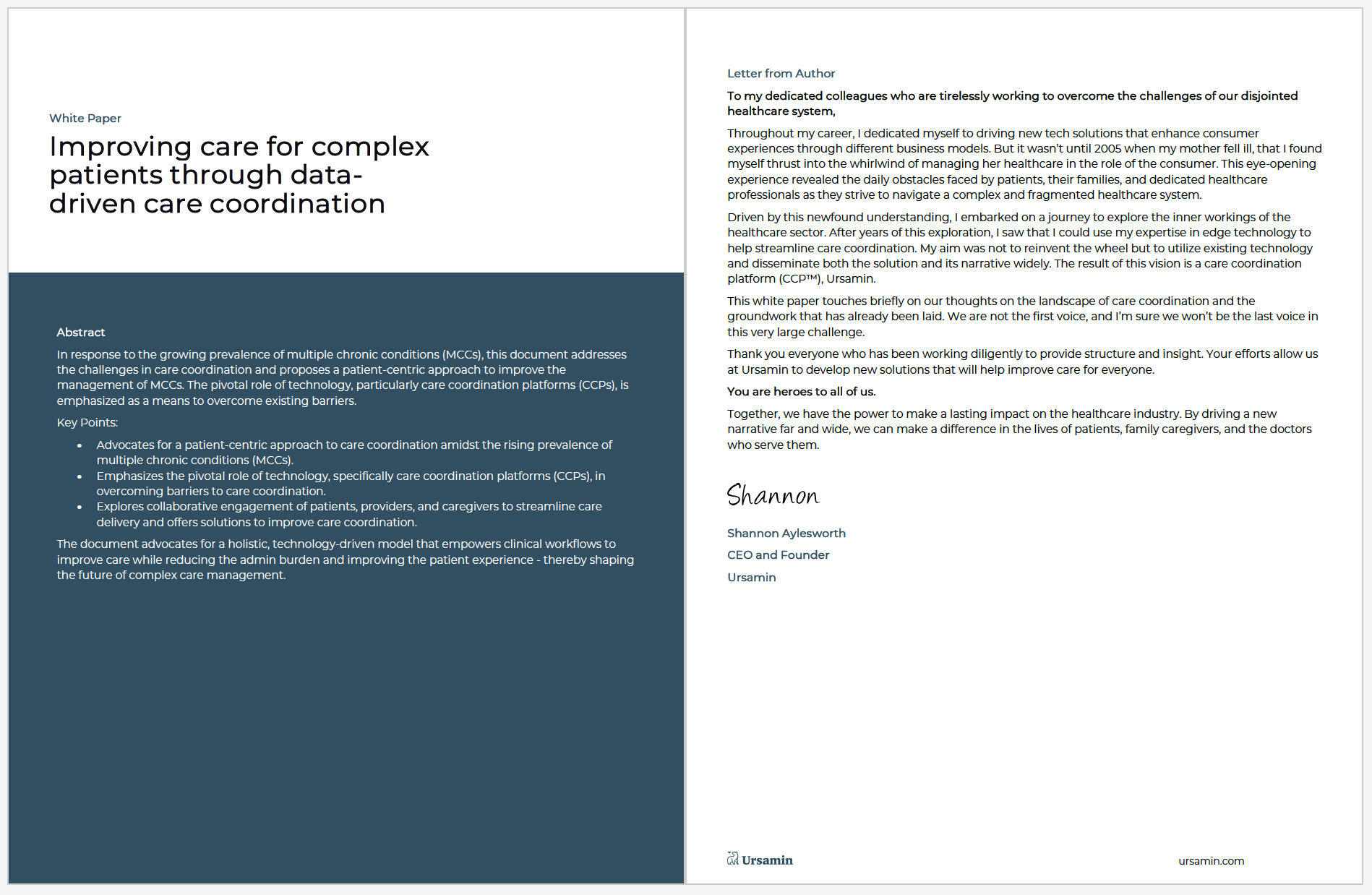Care coordination involves the seamless collaboration and communication among healthcare providers, patients, and caregivers to drive patient-centered care. This means the enablement of information sharing and shared decision-making with a goal of preventing errors, reducing costs, and enhancing outcomes.
One key advantage of care coordination is providing continuous care where primary care providers, specialists, care teams, and caregivers collaborate better – with access to a patient’s complete medical information and calendars. This level of collaboration empowers informed decisions, preventing conflicting treatments and reducing adverse events.
How a Care Coordination Platform (CCP™) Improves Revenue
Implementing a CCP™ like Ursamin significantly impacts healthcare organizations’ revenue by automating administrative processes, cutting operational costs, and enhancing revenue cycle management.
Ursamin’s CCP™ brings together patient information and care delivery teams in one location. This facilitates a community-based approach, and supports all stakeholders in the patient journey.
By consolidating the patient view into one location, you streamline the patient and caregiver’s engagement with their care team members quickly. This improves the adherence to treatment plans, minimizes the fragmentation of data, and enables healthcare professionals to make well-informed decisions using extensive patient information. By having access to a patient’s entire medical history – the right information at the right time – healthcare providers can gain a deeper understanding of their conditions, past treatments, and medication records. This knowledge facilitates improved coordination of care and decreases the likelihood of medication mistakes or unnecessary duplicate tests. This also minimizes risks associated with missing or incorrect information, improving cash flow.
Moreover, a CCP™ addresses revenue leakage through analytics that enables shared-decision making, identifying gaps in care and maximizing reimbursements. With a CCP™, healthcare providers can optimize resource utilization with shared calendars and real-time visibility into schedules and resources. This not only gives providers the patient info they need when they need it, it also allows organizations to see more patients. In turn, this results in the generation of additional revenue.
How a Care Coordination Platform (CCP™) Improves Patient Outcomes
Beyond revenue, a CCP™ significantly can help in the management of patient outcomes by facilitating communication among healthcare providers for timely and coordinated care.
A CCP™ reduces medical errors by providing access to complete patient histories, enhancing decision-making and patient safety. Care transitions improve as platforms enable secure sharing of patient information between healthcare settings, ensuring continuity of care and reducing gaps or duplications.
Furthermore, CCPs™ empower patients, promoting engagement, informed choices, adherence to treatment plans, and ultimately better health outcomes.
Implementing a Care Coordination (CCP™): Best Practices
Careful planning is crucial. Here are some best practices as a general guide:
- Assess organizational needs, evaluating workflows and involving stakeholders.
- Choose a platform aligned with requirements, emphasizing interoperability, ease of use, scalability, and security.
- Minimize resistance to change with comprehensive training.
- Establish and adopt effective communication protocols, which foster a collaborative culture.
The Future of Care Coordination in Chronic Disease Management
Successful implementation demands strategic planning, addressing challenges like resistance to change and data security. With the right strategies, healthcare organizations can leverage a CCP™ such as Ursamin to transform care delivery and enhance outcomes for patients with multiple chronic disease.
Learn more about the Ursamin CCP™ and how it unifies communication and addresses the complexities of patient data. Watch this 5-minute casual discussion with Ursamin’s Founder, Shannon Aylesworth:





